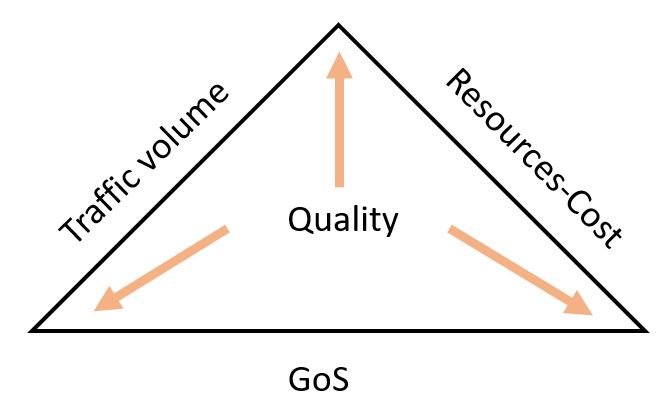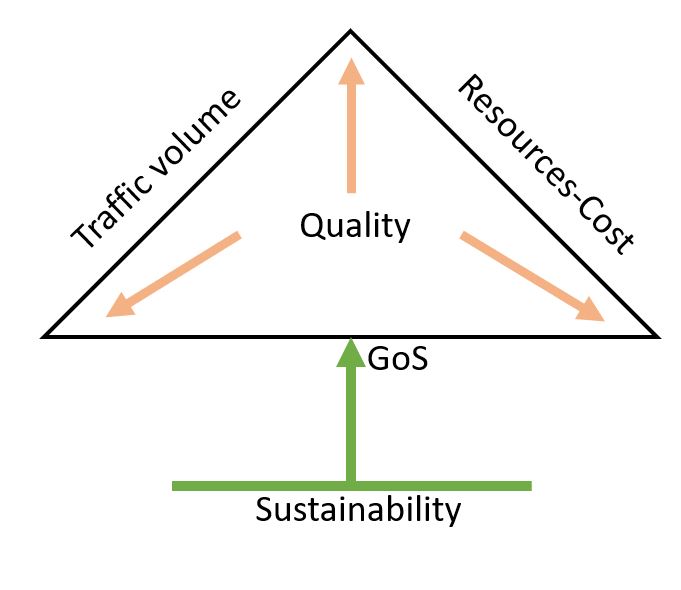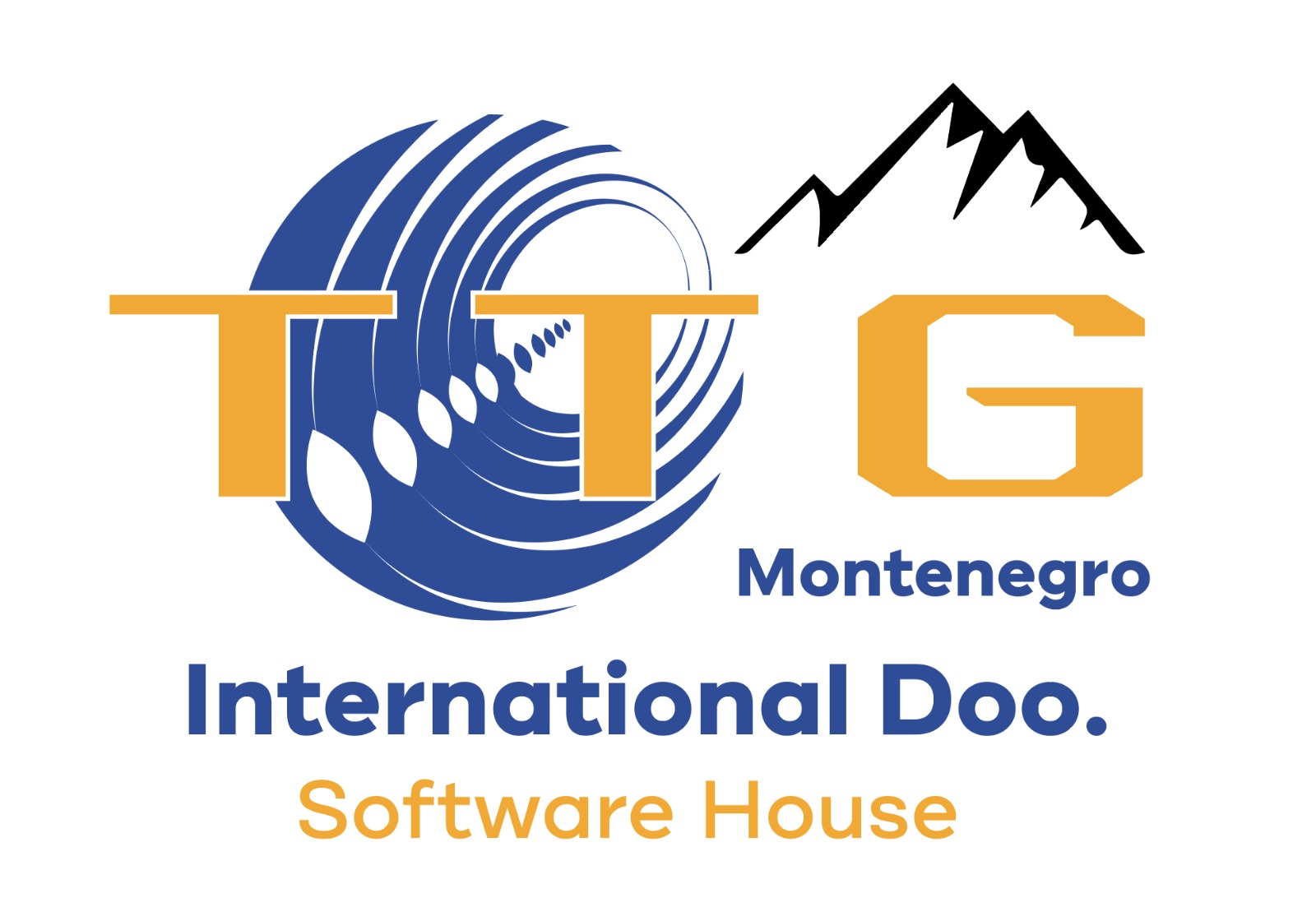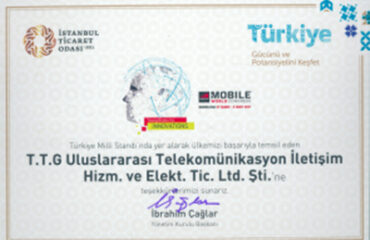What does it means GoS for the cellular network from Traffic, resource and GoS perspective?
Traffic refers to the amount of data or communication activity on the network at a given time. It is typically measured in terms of volume (the total amount of data transmitted) or density (the amount of traffic relative to the capacity of the network to carry it). In a cellular network, traffic can come from a variety of sources, such as voice calls, text messages, and data services.

Figure1. The “Traffic, resource and GoS-Quality triangle”
Resources refer to the various components and capabilities of the network that are used to support traffic, such as bandwidth, power, and spectrum. These resources are limited and must be carefully managed and allocated to support the desired level of traffic and GoS.
GoS, on the other hand, refers to the level of performance and reliability of the network, as perceived by its users. It is typically measured as the probability that a call or data session will be successfully completed, or that it will be completed with an acceptable level of quality. GoS is influenced by both traffic and resources, as well as other factors such as network design and configuration.
The “Traffic, resource and GoS triangle” illustrates the dynamic relationship between these three factors in a cellular network. An increase in traffic, for example, may lead to congestion and a decrease in GoS if the network does not have sufficient capacity to handle the additional traffic. On the other hand, optimizing the allocation of resources, such as by increasing the available bandwidth or deploying additional cell sites, can help to improve GoS.
Managing the “Traffic, resource and GoS triangle” effectively is critical to the operation and optimization of a cellular network. Network administrators must carefully balance these factors to deliver high-quality services to users while also minimizing costs and maximizing efficiency. This can be achieved through a variety of strategies, such as traffic management, resource allocation, and network design.
Overall, the “Traffic, resource and GoS triangle” is a useful concept for understanding the complex relationship between traffic, resources, and GoS in a cellular network, and for identifying strategies for optimizing the performance and efficiency of the network.
The GoS of the Network – The Role of Sustainability
Sustainability should be considered when assessing the GoS of a network. While GoS is primarily concerned with the reliability, efficiency, and performance of a network, sustainability is concerned with the long-term viability of a system or process. It considers the environmental, social, and economic impacts of a system or process, and aims to ensure that it can be maintained over the long term.

SGoS = (1- (Carried traffic / Offered traffic)) x k
Where “k” is a factor that reflects the sustainability of the network. The value of “k” could be determined based on various sustainability metrics, such as the amount of energy used by the network, the carbon emissions associated with the network, or the social and economic impacts of the network.
By including the “k” factor in the GoS formula, it is possible to account for the sustainability of the network and to assess the overall performance and impact of the network in a more comprehensive manner. This could help to ensure that the network is able to provide a high level of service to its users in a cost-effective and sustainable manner.
It is important to note that the specific approach for introducing sustainability into the GoS formula will depend on the specific goals and needs of the network and the metrics being used to assess sustainability. It may be necessary to develop a customized formula that takes into account the specific sustainability considerations of the network
Declare
“I hereby declare the introduction of the new concept of Sustainability GoS (SGoS) in the telecommunications industry. SGoS refers to the ability of a cellular network to provide a high level of service to its users in a sustainable manner, considering not only the Grade of Service (GoS) of the network, but also the environmental, social, and economic impacts of the network and the resources being used to support it.
I believe that SGoS is an important consideration in the design and operation of a cellular network, as it helps to ensure that the network can provide a high level of service to its users while also minimizing the environmental impact and maximizing the long-term sustainability of the network.
I encourage the telecommunications industry to adopt the concept of SGoS and to consider it in their efforts to optimize the performance and sustainability of their networks. By focusing on SGoS, we can work towards a future in which cellular networks are able to provide a high level of service to their users in a cost-effective and sustainable manner.”



